Humanities & Social Sciences
72nd Graduation: Doctoral Citations – CHUSS
Published
4 years agoon
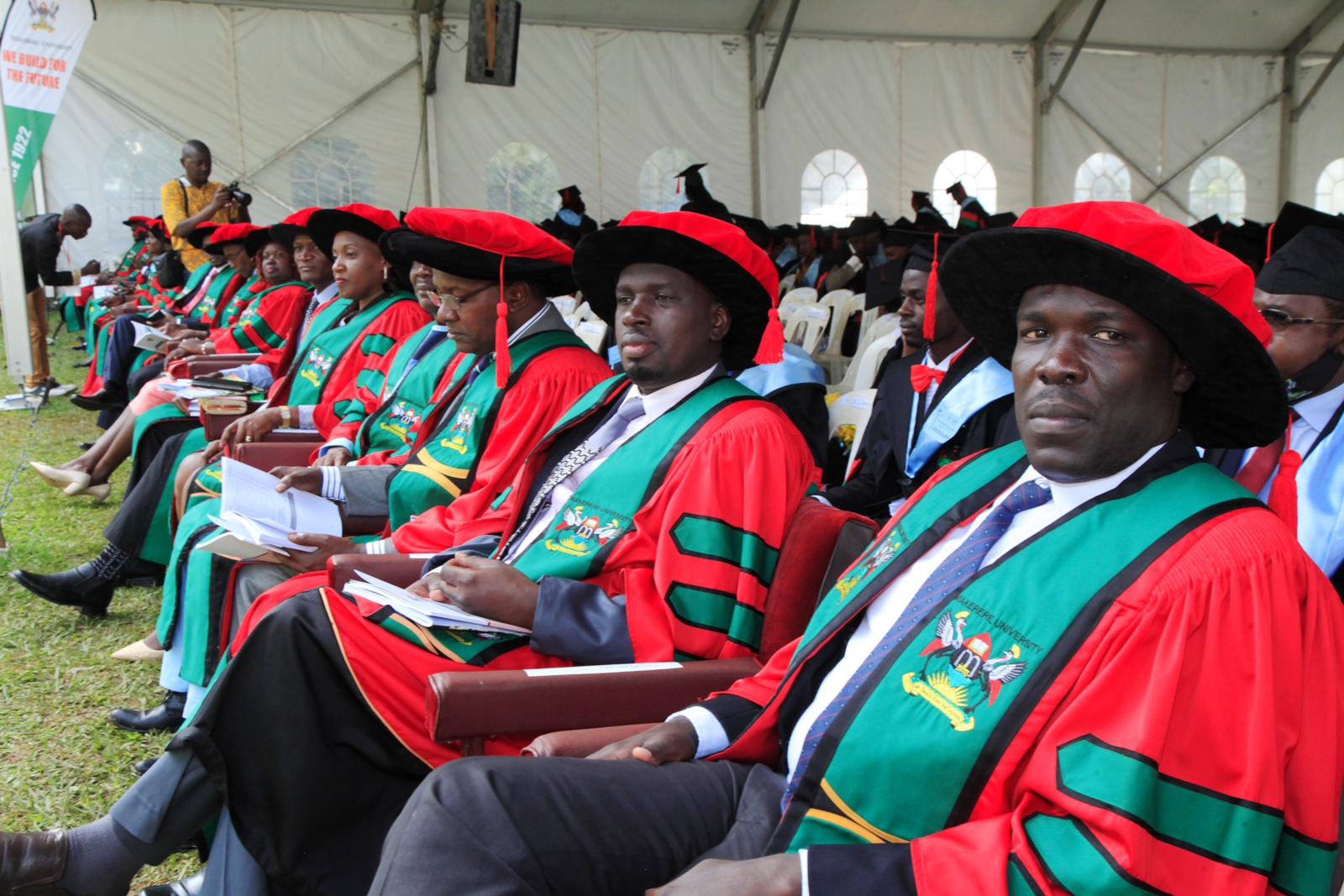
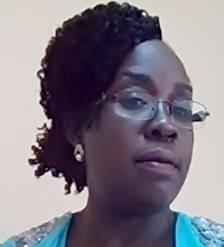
AMPAIRE Anne
Career Stereotypes and Aspiration as Predictors of Students’ Independence in Career Choice at Education Transitional Levels in Uganda
Ms. AMPAIRE Anne examined the extent to which career stereotypes and aspirations predict students’ career choice at education transitional levels in Uganda. This was motivated by the continued challenges that impact on students’ independence in career choice and the extent to which career decisions are based on the available facts. This has led to students taking up careers that are not in line with their interests, value system, and skills, thereby compromising the outcome expectations. Overall, the results revealed that reliance on personal independence and career choice facts, is decreased by the prevailing career stereotypes, across the education transitional levels. This has resulted into an increase in the number of students who pursue careers that are inconsistent with their career aspirations and interests, and there is need for measures aimed at addressing those prevailing career stereotypes. The study was co-funded by myself and Makerere University and was supervised by Dr. Mayanja Kajumba and Prof. Anthony M. Mugagga.
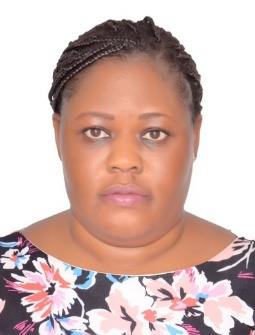
ANTWIWAA Stella
The Representation of Women in Selected Plays of Euripides and Selected Ghanaian Playwrights
Ms. ANTWIWAA Stella employed feminist and postcolonial theories to interrogate the representation of women in selected classical Euripidean plays and selected Ghanaian playwrights to examine the ‘universalist’ view that the Classics are models for others to learn from. The research questions the hegemonic elevation of the Classical/Western values to examine African experiences. The study reveals that in terms of gender representations, the Classical Greek, through Euripides’ writings, does not provide examples for the Akan (Ghanaian/African) societies. The study recommends that African scholars need to adopt Afrocentric epistemology to examine African experiences in order to shift and balance the centres of knowledge production and circulation. Africa’s classics in history, art, myths, folktales and indigenous knowledge need to be foregrounded in scholarship to address the pedestal placement of the Western Classics as a yardstick to evaluate African artefacts. Granted the Classics continue to be valuable, scholars need to interrogate them when applied to different cultural experiences. This critical and comparative study challenges the ideology of the superiority of Western Classics over other cultures. This study was funded by Gerda Henkel Stiftung Foundation, and supervised by Prof. Dominica Dipio and Dr Danson Kahyana.
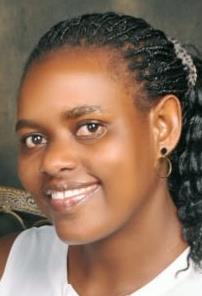
ARINAITWE Perpetua
Kiswahili at Crossroads: Cultural Politics and Language Policy in Uganda.
Ms. ARINAITWE Perpetua studied historical narratives of different language policies and factors that impacted Kiswahili growth across the different historical periods; the pre-colonial period (1840-1894); the colonial period (1894-1962); and the post-colonial period (1962-2019). A blend of three approaches to language policy and planning (LPP); the Historical-structural model, the Neo-classical Model and Language Management Theory (LMT). A narrative technique enabled the collection of both qualitative and quantitative data. Findings revealed that Kiswahili growth has been dependent on numerous language policies stretching from the pre, during and post-colonial epochs. Constant shift in cultural and political leadership meant that whoever held power determined the language policies that favoured their leadership ideology. The study was funded by the GERDA HENKEL STIFFTUNG and was supervised by Dr Saudah Namyalo and Dr Gumoshabe Gilbert.
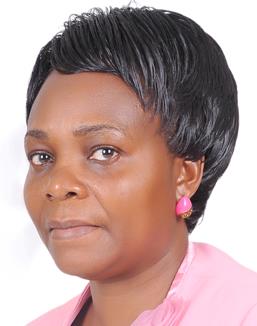
ASIIMWE Stedia
Female survivors’ Experiences of Intimate Partner Violence (IPV) and access to justice in Uganda
Ms. ASIIMWE Stedia investigated female survivors’ experiences of intimate partner violence (IPV) and access to justice in Uganda, with a focus on relationships involving male police officers. The study was carried out in Jinja police barracks in Eastern Uganda. Methodologically, qualitative approach was employed, using case study design. Findings indicate that female survivors of IPV experienced physical, sexual, economic and psychological violence. Factors that triggered IPV against women in police families included: shared accommodation, poorly managed transfers and daily deployments, alcoholism, low salaries, refusing women to work outside the barracks and work related stress. Access to justice by female survivors of IPV was constrained by alien referral pathways to justice, abusers’ possession of a weapon, long procedures, laxity by authority to punish fellow officers, sexual harassment, women’s lack of information about their rights and Government’s failure to decentralize some services. The study argues that the arm of the law is too short to reach civilian female survivors of IPV, because the abusers are at the same time the vehicles through which justice is supposed to be delivered. The study recommends that police management should construct more houses for officers, include a module on Gender based violence in police training syllabus and use mult-professional teams to handle IPV cases. The study was funded by Makerere-Sweden Bilateral Research Program, and was supervised by Dr. Victoria Flavia Namuggala and Dr. Ruth Nsibirano.

ATWAGALA Donnah
A Comparative Analysis of Land ownership and Land conflicts in post-conflict areas of Luwero and Amuru Districts, Uganda: A Gender Perspective
Ms. ATWAGALA Donnah analysed the effects of landownership and land conflicts on gender perspectives in post-conflict areas of Luwero and Amuru Districts in Uganda. The findings show that the nature and causes of land conflicts have evolved, transforming from being local to becoming international. Actors and conflicts have become more sophisticated and complex to identify and analyse, respectively. The study recommends adopting the right-based, gender and conflict-sensitive land acquisition, ownership and management framework that will ensure equitable land acquisition, access and use by all stakeholders. This study was supervised by Dr. Paddy Musana and Assoc. Prof. Consolata Kabonesa.
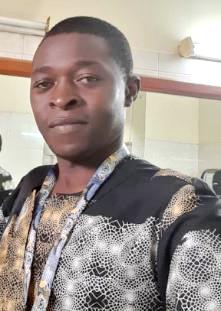
BALIKOOWA Richard
A Sociocultural Exploration of Children’s Experiences and Perspectives on Gender-based Violence in Primary Schools in Busoga Sub-region, Uganda
Mr. BALIKOOWA Richard explored the experiences and perspectives of primary school children regarding gender-based violence in and around schools and its impact on their schooling; in Uganda’s Busoga sub-region. Using a sociocultural approach, Balikoowa adopted a multimethod design through which he involved 450 male and female school children from 10 to 14 years in participatory visual activities; including draw-and-talk, child-friendly focus group conversations, in-depth interviews; as well as the eclectic administration of a survey tool. Children acknowledged experiencing and/or witnessing gender-based violence in and around their schools. They also disclosed that gender-biased factors associated with school setup and gender-based violence immensely negatively affected their motivation to engage in school activities. However, children’s greatest nervousness and related impact on their schooling was attributed to the unresponsiveness and unempathetic attitude by those around them. The study recommended that stakeholders in children’s schooling should allow them reveal their challenges and also pay concerted attention to them as key participants in their development and schooling. The study was funded by the Andrew W. Mellon and was supervised by Assoc. Prof. Julius Fred Kikooma and Dr. David Onen.
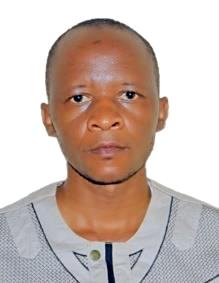
FEDEO Ignas
Myth and Mythmaking in the Narratives about Mwalimu Julius Nyerere among the Banyakyusa
Mr. FEDEO Ignas studied the recreation of Nyerere’s personal life and political career in Banyakyusa myths. The study offers an alternative understanding of Nyerere’s life and history as perceived by local people. Using oral history interviews and content analysis, Banyakyusa myths which carry their culture, voices, beliefs, and perceptions of Nyerere were recorded. The myths were interpreted based on Banyakyusa traditional beliefs and their life experiences. The findings revealed that Banyakyusa believe that Nyerere was endowed with immerse supernatural and mystical powers which helped him to implement his presidential duties successfully and protect himself and the Tanzanian people. The study established the Banyakyusa belief that Nyerere’s mystical powers greatly account for the prominence of his ideas and the reverence accorded to him in Tanzania, Africa and the world at large. The study will promote preservation of Banyakyusa and other Africans oral materials especially myths which carry beliefs and perceptions of local people. This study was funded by Gerda-Henkel Stiftung Foundation and supervised by Prof Abasi Kiyimba and Dr. Benge Okot.
KATURAMU Alex
Land, social Change and the lives of nomadic pastoralists in Western Uganda since 1950
Mr. KATURAMU Alex examined the historical proliferation of nomadic pastoralists focusing on the issues of land and social change since 1950. In the results, seasonal movements culminated into land conflicts among pastoralists and farmers. The land conflicts were exacerbated by intensity of population in the cattle corridor. The study shows that pastoralists remain one of the secors that significantly contribute to Uganda’s Gross Domestic Product, hence deserving resource investiments to improve the livelihoods of herders. This study was supervised by Dr. Simon Peter Rutabajuuka and Dr. Charlottee Karungu Mafumbo.
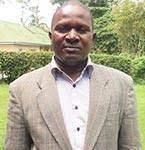
KIGEMBE Elmerek
Challenges of Strategic Plan Implementation in the North Western Diocese: Evangelical Lutheran Church in Tanzania
Rev. KIGEMBE Elmereck investigated the challenges that limited strategic plan implementation in the North Western Diocese of the Evangelical Lutheran church in Tanzania. The study identified Improper resource allocation, limited knowledge of implementers, un-conducive working conditions, lack of clear targets and changes in Government policies as negative actors in strategic plan implementation. For the church to effectively implement its strategic plan objectives so as to deliver God’s Mission, the study recommended strategic mobilization, monitoring and allocation of resources; integration of training in the strategic plan implementation processes; enhancement of working conditions; integration of clear targets in action plans and regular review of strategic plan instruments to accommodate changes in the government policy. The study was funded by the United Evangelical Mission (UEM) and supervised by Dr. Patrick Mangeni and Dr. Veneranda Mbabazi.
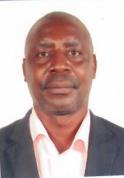
KIRIGGWAJJO Anatole
The Tonology of Lunyala Nouns, Noun Phrases and Verbs
Mr. KIRIGGWAJJO Anatole investigated the tonology of Lunyala one of Uganda’s minority languages mainly spoken in the district of Kayunga. He argues that although the tone system of Bantu languages has attracted a lot of attention in the last decade, minority languages have been neglected making such languages endangered. His study found out that Lunyala has a privative tone system with the High tone marked underlying while both the underlying and surface tones are borne by moras in a one-to-one correspondence. Further the tone distribution over the moras is determined by tonal processes for example; High and Low tone spreading, Obligatory contour Principle and Tonal polarity among others. He underscores the usefulness of the study in compiling Lunyala online-talking dictionaries and developing teaching and learning materials in Lunyala. This study was funded by Volkswagen Foundation and was supervised by Dr. Saudah Namyalo.
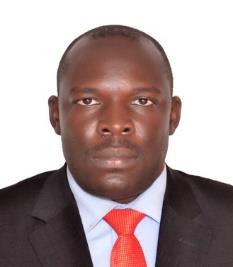
IMOKOLA John Baptist
Television Programming Regulation: Examining the Policy Implementation of Local Content Quotas in Uganda
Mr. IMOKOLA John Baptist examined the implementation of television local content quotas policy in Uganda. Five years after television local content quotas were implemented in 2014, no known comprehensive assessment had been done on uptake by television stations, and how the is understood by the different stakeholders. The study analyzed the perspectives of different stakeholders, opportunities from the local content quotas and the challenges affecting implementation. Using key informant interviews, focus group discussions and document analysis, the study found that Uganda Communications Commission, the television stations, the local content producers and the audience had reacted differently towards the policy. Implementation has seen increased production, acquisition, adaptation and airing of Ugandan content for television. Although there are opportunities created by the policy, achievement of these are bedeviled structural, conceptual, economic and political challenges affecting effective implementation. The study proposed a new definition of local content, and recommends a consultative process in the formulation and implementation of broadcast policies. This study was funded by Andrew Mellon CHUSS Fellowship and supervised by Prof. Goretti Linda Nassanga and Dr. Brian Semujju.
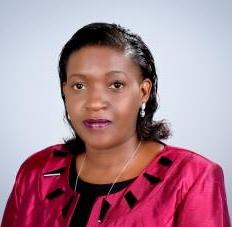
KYOMUHENDO Marjorie Niyitegeka
Family Planning Communication in Uganda: An Interrogation of Media Reporting, Communication Campaigns and Audience Perspectives
Ms. KYOMUHENDO Marjorie Niyitegeka’s study was motivated by the constant high awareness and low use of contraceptives by most women and men of reproductive age in Uganda. She thus examined the framing of family planning information in selected media stories and health communication campaigns. She also explored how audience members targeted by the campaigns interpreted family planning information. Her study found deficiencies in family planning communication occasioned by shallow media reporting and information transmission approaches that disregarded the audience’s information needs and contextual factors. She recommends that the Ministry of Health and partners implement a harmonised communication strategy that is audience-centred and responsive to the emerging information needs and socio-ecological contexts of particular audience segments. She further urges Uganda’s media to practise more enterprise and interpretive journalism in reporting family planning to amplify its significance to the public. The study was co-funded by CARTA and Makerere University, and was supervised by Prof.Goretti L. Nassanga and Prof. Anne R. Katahoire.
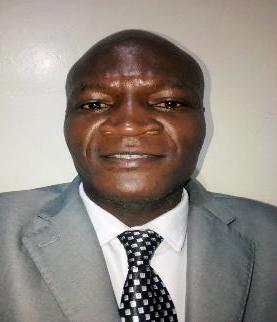
LUGWIRI Okombo Patrick
A citizen Sociolinguistics Appraisal of Kiswahili as a Tool for Social Integration in the East African Community
Mr. LUGWIRI Okombo Patrick employed the Citizen Sociolinguistics model to explore language-based decisions about Kiswahili among ordinary citizens in the East African Community, specifically, in Busia and Namanga border towns. Lugwiri’s study was motivated by Article 137(2) of the EAC Treaty (1999) which provides for the promotion of Kiswahili as a lingua franca of the Community. Using ethnographic methods, the study examined the patterns and extent of the use of Kiswahili, the nature of Kiswahili used, and citizens perceptions and attitudes to Kiswahili. The study found that Kiswahili is construed, constructed and appropriated differently by different citizens in different domains and spaces, and therefore, a highly varied language. While Kiswahili has the potential of a common language of communication and a tool for social integration in the EAC, issues of varieties and labels, contact and conflict between varieties, status and prestige, perceptions and attitudes, national and social identity, and linguistic power struggles impact negatively on this potential. The study recommended a shift in approach to Kiswahili in the EAC from the ‘top-down’ policies to ‘bottom-up’ or practice-based policies that take into account participation of ordinary citizens as makers and shapers of language policies. The study was funded by Gerda Henkel Fellowship and supervised by Dr Merit Kabugo and Dr Florence Bayiga.
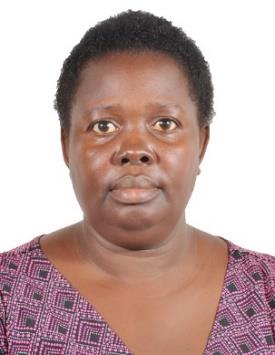
MUDONDO Constance
Land Conflicts and Livelihoods of People Utilising Namatala Wetland in Eastern Uganda
Ms. MUDONDO Constance examined how land conflicts shape livelihoods of people. Using Namatala Wetland in Eastern Uganda as a case, she examined the conflict dimensions and drivers, land use, and conflict management mechanisms. She found that increasing demand for moist farm land shape conflict dimensions leading to cleavage formation based on class, ethnicity, and location. The emergent quests for territorial control and inequality result in violence, which hinders optimal use of land and diminishes wetland users’ capitals. Although formal conflict management strategies have been tried, they were largely protectionist and divisive, reinforcing feelings of relative deprivation and latent hostilities. Consequently, the wetland users have resorted to informal coping mechanisms like social-networks that act as collective labour, financial safety valves and buffers against attacks. She argues that alleviating the effects of land conflicts requires shifting from structural models to locally bred conflict management systems. The study was funded by SIDA and supervised by Dr. Robert Kabumbuli and Dr. Dauda Waiswa Batega.
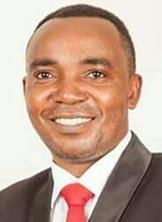
MUGENYI Jonathan
Singing Politics: Popular Music, Popular Politics and Contingencies of Protest in NRM’s Uganda
Mr. MUGENYI Jonathan examined the deployment of musical expression in the practice of state politics under Uganda’s National Resistance Movement. On the one hand, he investigated the direct and implied ways by which the NRM deploys musical expression as a tool of political mobilisation and legitimization while on the other hand, he examined ways by which the Ugandan society uses musical expression to create alternatives ways of engaging with NRM politics. Expanding the Foucauldian theory of power, Mugenyi argues that musical expression is a conduit of state power that percolates into society and it is the same conduit that returns to the state to challenge its power as contingencies of protest. This study was funded under Makerere Institute of Social Research’s Interdisciplinary MPhil/PhD and was supervised by Prof. Mahmood Mamdani.
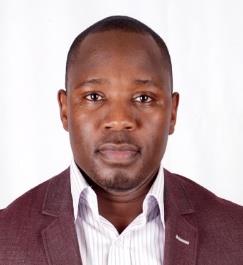
MWANIKA Kassim
Commercial Sugarcane Farming and Rural Youth Livelihoods in Eastern Uganda
Mr. MWANIKA Kassim examined the implications of commercial farming on a vulnerable population. Focusing on sugarcane farming and youth livelihoods in Eastern Uganda, he found that sugarcane farming has a suboptimal impact on youth livelihoods in Busoga sub-region. Due to limited requisite resources, the youth constitute the bulk of sugarcane labour force and their benefits from the industry are limited to wage earnings. He argues that commercial sugarcane farming is an enclave for wealthy groups, and that youth are incorporated into circuits of capital accumulation where they are exploited by employers. The process is exacerbated by lack of labour regulations and sugarcane price volatility, which undermine the trickle-down effect of sugarcane farming on youth livelihoods. Enhancing outcomes from sugarcane farming requires addressing structural traps embedded in capitalist large-scale farming. The study was funded by SIDA and supervised by Assoc. Prof. Andrew Ellias State, Prof. Atekyereza Peter and Assoc. Prof. Torun Österberg.
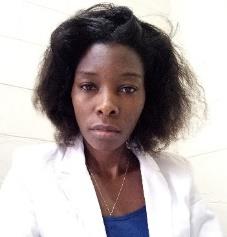
NAKABO Seruga Robinah
Followership and Women’s Empowerment for Sustainable Development: A Case of the Women in the National Association of Women’s Organisations in Uganda
Ms. NAKABO Seruga Robinah investigated followership and women’s empowerment for sustainable development, taking the case of the women in NAWOU. After in-depth interviews, findings showed that followership was generally a taken for granted concept. Respondents perceived followership as a cooperative venture, retrospection on past experiences, as a detour, seeking to stabilise or destabilise the status quo, identifying preferred values, and mentorship. Most voices reiterated that generally, many women exhibited perpetual and unconscious followership tendencies even when other alternatives were available; with fear as the main causal condition. However, women’s followership of NAWOU was found to be pragmatic and conscious with the implication of possible empowerment; intervened by education, family ties, and financial situations. The conclusion was, depending on personal characteristics, perception of empowerment and the typology of followership adopted, women could gain empowerment for sustainable development. The recommendation is that NAWOU, the government, academic institutions, and similar organizations reconsider the concept of followership and its implications on empowerment. The study was supervised by Assoc Prof. Godfrey Assimwe, and Dr. Robert S. Esiruku
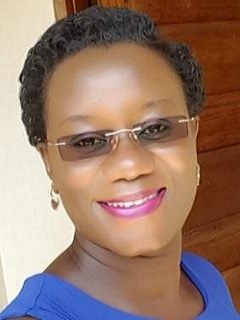
NAKALYOWA Deborah
Intimate Partner Violence and Masculinities: Experiences of Baganda male “survivors” in Masaka District, Uganda
Ms. NAKALYOWA Deborah examined, through a qualitative methodology, the lived experiences of men who were subjected to Intimate Partner Violence (IPV) by their female intimate partners in heterosexual relationships, including forms/types in which the IPV manifested, and how it affected the masculine identities of the male victims. Findings revealed that they were subjected to psychological/emotional violence, in addition to physical aggression and sexual abuse in the contexts of Intimate Terrorism, Situational Couple Violence and Mutual Violent Control. While the importance of maintaining an appropriate sense of masculinity underpinned their narratives, the male victims described feeling shame and embarrassment for not having met the dominant cultural expectations surrounding masculinity, consequently affecting their emotional and physical well-being. However, the majority of men were hesitant to seek help after victimization, for fear of ridicule, emasculation and being cast as the perpetrators. Therefore, there is need for more research and advocacy to enhance recognition and public awareness about the plight of male victims, review of laws/policies aimed at combating IPV in intimate relationships to be more gender-inclusive, as well as establish victim service support sources for all IPV victims, regardless of gender. The study was funded by SIDA and supervised by Dr. Evelyn Lutwama-Rukundo and Assoc. Prof. Consolata Kabonesa
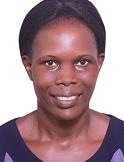
NANSAMBA Joyce
Why They Stay: A socio-cultural Reconstruction of Academics’ Retention in Uganda’s Public Universities.
Ms. NANSAMBA Joyce explains why Academics stay working in Uganda’s Public Universities despite unappealing working conditions. Recognizing that staff retention is not exclusively about institutional frameworks and individually situated explanations, the study underscores the role of historical, social and cultural contexts in explaining retention. A narrative analysis of the academics’ stories revealed that the meaning academics attach to their professional identity, the social relations from engaged scholarship and the otherness from external prestige explain their retention. The study was a departure from conventional thinking that attractive pay and benefits, satisfactory terms of service, good working conditions among others explain retention. It was a novel step to studying retention as a social construction from the perspective of Academics’ own experiences. The study was funded by Makerere University and supervised by Assoc Prof. Julius Kikooma and Assoc Prof. Umar Kakumba.
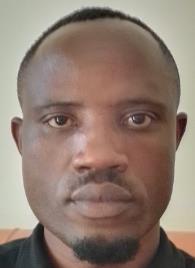
NIRINGIYIMANA Julius
Oil Politics and Land Conflicts in the Albertine Region, Uganda
Mr. NIRINGIYIMANA Julius investigated how oil politics was influencing the changing nature of land conflicts in the Albertine region of Uganda. The study discovered that though the Ugandan government had been engaging in protracted negotiations with multinational oil corporations in an effort to protect the national interests, the process instead got plagued by land conflicts and dispossession of citizens from their land. It established that the interests of the actors conflicted and led to the politicization of oil governance. Consequently, the government was made to adjust its position to accommodate the interests of multinational oil corporations while other opportunistic interests, such as land speculators also took advantage. These actions made the affected persons to lose their land rights which invoked and intensified land conflicts in form of Polanyi’s ‘countermovement’ and adversely affected people’s livelihoods. The study concluded that where neoliberal capitalism interfaces with an oil-producing developing country, citizens face dispossession of land and other rights, and where there are pre-existing land conflicts, the politicisation of oil intensifies them and produces new ones. The study recommends that the Ugandan state should re-assert its interests and obligations to protect people’s land rights and make multinational oil corporations to adhere to internationally established benchmarks such as fair compensation. This study was funded by SIDA and supervised by Prof Muhumuza William and Prof Murindwa Rutanga.
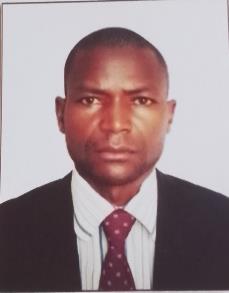
TUNANUKYE Nicholas
A History of Migrancy, Nativism, and Citizenship in Uganda, 1894-1995: A case of South and Western Uganda
Mr. TUNANUKYE Nicholas examined the relationship between migrations, identity formations and citizenship in Uganda, 1894-1995 using migration experiences of Bakiga and Banyankole into Buganda, and Bakiga into Bunyoro. Using historical research methods which included analysis of documents, oral narratives and archival sources, the study established that, whereas migration had taken place in the region of pre-Uganda, colonial rule encouraged unprecedented internal migration in Uganda. The new socio-economic order brought about by the colonial state opened the way for free movement in the protectorate across ethnic boundaries. There were two main reasons for this accelerated migration: migrant labour and search for land. The migration of Banyankole and Bakiga from southwestern region of Uganda to Buganda in the 1930s, 1940s into 1960s was largely in response to the former, while the migration of the Bakiga into Bunyoro and Toro regions during the 1950s and 1960s was in response to latter. The study also established that there were complex interactions between the migrating and receiving communities. One major complexity lay in the attitude of nativism, expressed in subtle ways. Nativism gave rise to two kinds of citizenship consciousness: the Local Citizenship bestowed by membership to an ancestral community inhabiting a particular region and National Citizenship bestowed by the statutes of the Ugandan state. The study was funded by The Andrew W. Mellon Foundation and was supervised by Dr. Simon Peter Rutabajuuka and Dr. Deo Nzarwa Katono.
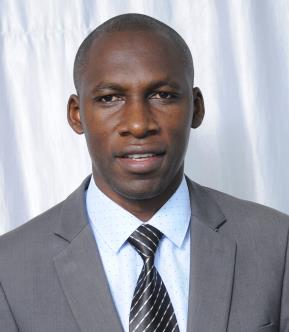
WAMAMELA Nixon
A critique of Constitutional making and amendment in Uganda with Reference to the 1967 &1995 Constitution
Mr. WAMAMELA Nixon conducted an ethical critique of constitutional making and amendment in Uganda with specific reference to the 1967 and 1995 constitutions. The study established that the constitutional processes were seemingly legitimate, yet, self-interest tendencies overrode common interest, hence, the resultant controversies such as lack of consensus among members of parliament, questionable declaration of state of emergency, controversial consultations, resultant scuffles and violent scenes in parliament. It was also established that ideals of constitutional democracy and legislative ethics were lacking. To mitigate the above challenges, an ethical framework for constitutional making and amendment processes should be put into account. Such a framework should include referenda, benchmarking and a national consensus on ethical principles, declaration of conflict of interest by the incumbents and other possible beneficiaries. These are possible through creation of ethics review committee within parliament. The study was funded by Andrew W. Mellon Foundation and supervised by Prof. Archangel Rukooko Byaruhanga and Dr. Paul Matthias Shimiyu.
Browse Citations by College below:
< Director’s Message | CAES | CoBAMS | CoCIS | CEES | CEDAT | CHS | CHUSS | CoNAS | CoVAB | LAW | MUBS >
You may like
-


CAES Presents Overall Best Performing Student in the Sciences & a Record 28 PhDs at the 76th Graduation Ceremony
-


Over 9,200 to graduate at Makerere University’s 76th Graduation
-


Philliph Acaye and the Making of Uganda’s Environmental Health Workforce
-


76th Graduation Highlights
-


Mak Selected to Host Alliance for African Partnership Africa Office
-


Meet Najjuka Whitney, The Girl Who Missed Law and Found Her Voice
Humanities & Social Sciences
Meet Najjuka Whitney, The Girl Who Missed Law and Found Her Voice
Published
3 days agoon
February 23, 2026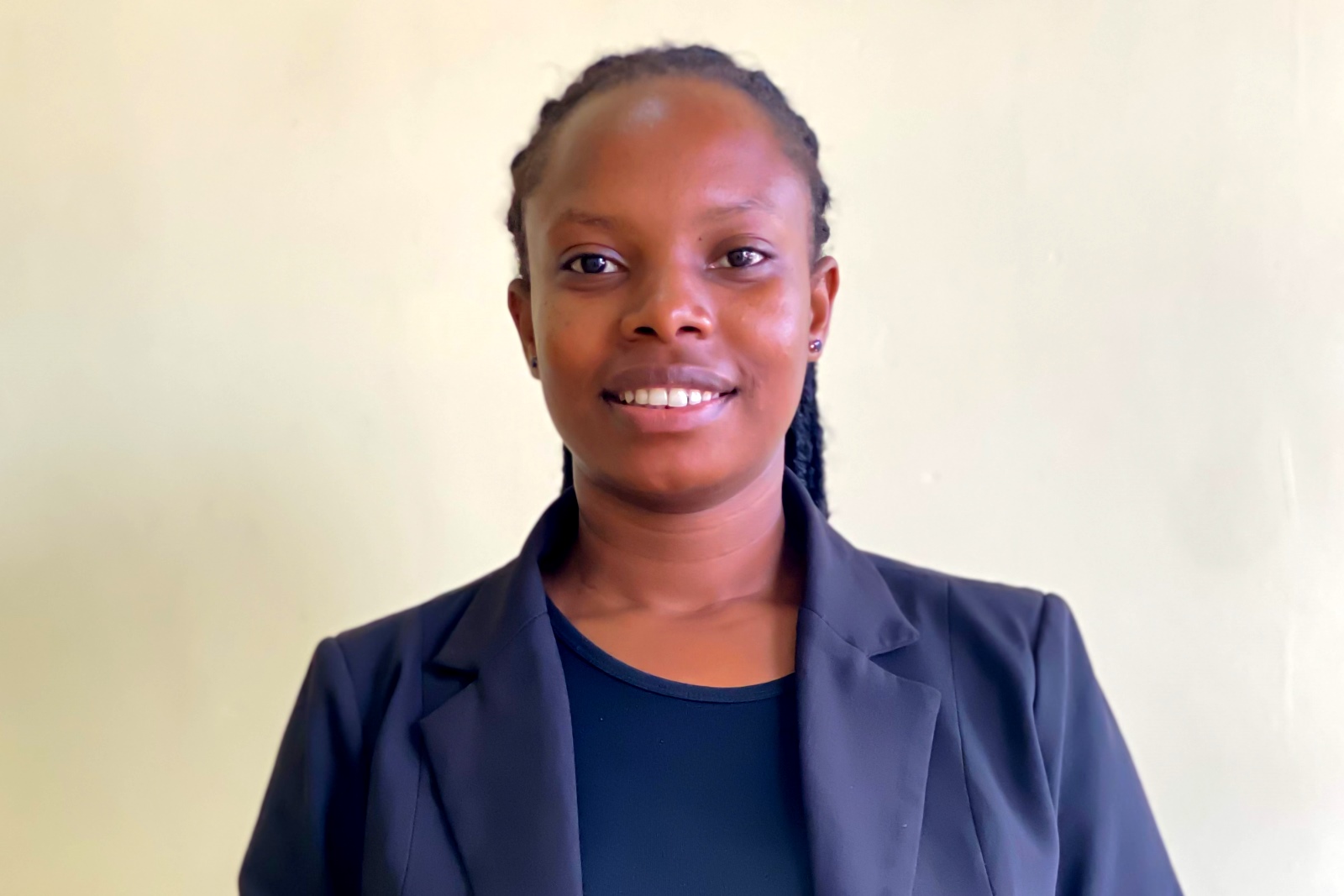
On the morning of Friday, February 27, when the academic procession winds its way across Makerere University’s Freedom Square for the last day of the 76th Graduation Ceremony, Whitney Najjuka will walk into history with a number beside her name: 4.46.
At Makerere, that number means First Class Honours. It means the Vice Chancellor’s List. It means she graduates as the only First-Class student in Journalism and Communication this year. But numbers, as Whitney has learned, rarely tell the full story.
Born on March 27, 2002, in Nabbingo, Kyengera Town Council, to Margaret Kusemererwa and Fred Kasirye, dreamt she would do Law, one of the disciplines, prestigious, almost inevitable next steps for a student who had excelled in secondary school. She had done everything correctly. Studied hard. Scored well. Followed the script.
But Makerere University had other plans. She missed the pre-entry mark, but found her name under Journalism and Communication, another prestigious course offered by the Journalism and Communication Department at Makerere University.
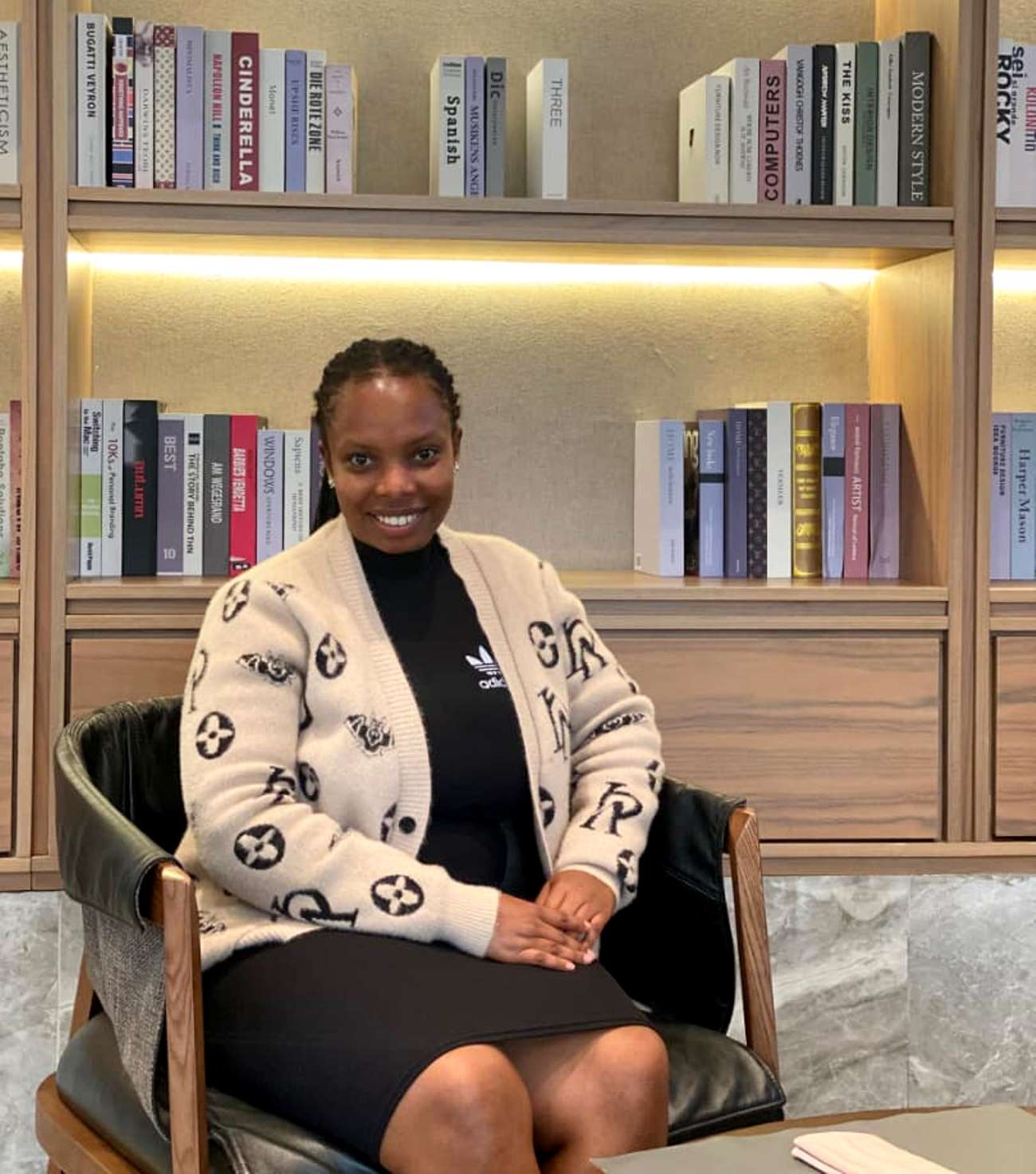
Najjuka began her academic journey at Muto Primary School in Buwama, earning 8 aggregates in the Primary Leaving Examination, a performance that positioned her strongly for secondary school.
She would later join St. Lucia Hill School, Namagoma, where she earned 20 aggregates at O-Level and 17 points in History, Luganda, and Divinity at A-Level.
Missing her dream course, Law, felt at first, like a detour. But Whitney was encouraged by Sanyu Christopher, her uncle, and she settled for a government-sponsored slot in the Bachelor of Journalism and Communication at Makerere, which she had applied for before.
She entered uncertain. But she graduates transformed.
The Pivot That Became a Purpose
Whitney speaks of her early university days with candor. She did not arrive at the Department of Journalism and Communication with a burning childhood ambition to be a journalist, but because another door had closed.
Then, Social and Behavior Change Communication happened. Applied Strategic Communication happened. She began to see media not as headlines and microphones, but as architecture, shaping how societies think, argue, and act.
The turning point came in her third year. The Female Journalist Foundation published her story on Sexual Gender-Based Violence (SGBV) and its emotional toll on survivors. What startled her was not its publication but the reaction. Comments flooded in. Debates ignited, especially about the role of men in combating GBV.
“I realized media doesn’t just report,” she says. “It frames how society views a crisis.”
Her voice, once tentative, had entered a national conversation.
The Discipline Behind 4.46
At Makerere University, a First Class CGPA is not built on brilliance alone but on ritual.
Whitney’s ritual began with showing up, on time, every time. She treated lectures as appointments with her future self. She refused to confine her learning to the syllabus. While attending workshops at the Aga Khan Graduate School of Media and Communication and obtaining external certifications, she sought and was open to mentorship through the Public Relations Association of Uganda (PRAU).
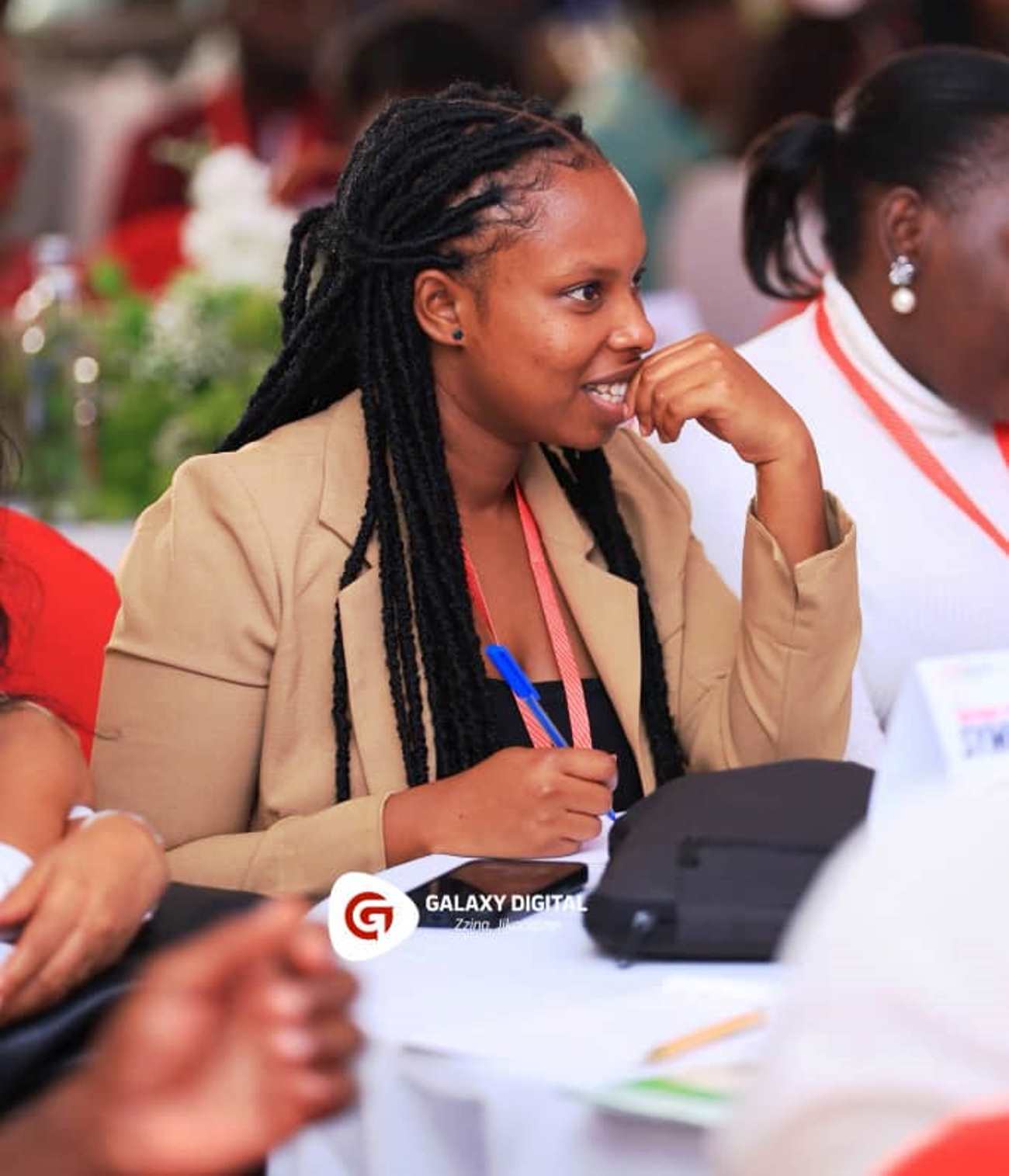
She wanted theory anchored in practice. And then there was the commute.
From Nabbingo, a hill in Wakiso District, some 18.6 km to Kampala, where the Makerere Main campus is situated, and back, nearly 20 hours a week dissolved into Kampala traffic. Two-hour journeys before 8:00 a.m. lectures. Dust. Noise. Headaches. She learned to manage energy the way others manage time. Fatigue became a tutor in resilience.
“I had to be intentional with every remaining hour,” she says. “Excuses were not an option.”
Learning to Practice Communication
If classrooms taught her analysis, presentations taught her courage. Pitching projects, defending research, and standing before peers quick to critique forced her to think on her feet. She was no longer simply studying communication; she was practicing it.
In 2024, the AGMES Fellowship at the Aga Khan Graduate School of Media and Communication pushed her further. She received funding to produce a capstone project on the mental impact of gender-based violence on survivors. She identified sources, conducted interviews, handled trauma with care, and worked with professional editors.
The Communication, she learned, is logistics and ethics as much as eloquence.
The Future She Sees
Whitney is optimistic about Uganda’s media landscape. The digital shift, she believes, has democratized influence. Young communicators are no longer confined to legacy newsrooms or offices.
Yet she sees a gap in the absence of structured research on sustainable, ethical, profitable independent media ventures in Uganda. Her ambition is not only to practice communication, but to study it. To produce data-backed frameworks that help young Ugandans transition from graduates to media entrepreneurs.
She wants to make the impact scalable.
What Remains
As the only First-Class graduate in her cohort, she is careful not to mythologize herself. “Success isn’t brilliance alone,” she says. “It’s a daily commitment when nobody is watching.”
Even before graduation, Whitney had stepped into the industry through a mentorship internship at Capital One Group (COG EA Ltd), a strategic marketing communications agency operating across East Africa.
At Capital One Group, we spoke to Paul Mwirigi Muriungi, the Managing Director and Head of Strategy, who spoke of Najjuka as a progressive and intentional young professional who approaches her work with curiosity, maturity, and responsibility.
“Her attitude is exemplary. She is teachable, receptive to feedback, and eager to grow. While technical skills can be taught, character, work ethic, and mindset determine long-term success, qualities that Whitney consistently demonstrates. Given her academic excellence and professional application, we believe she has a bright future both at Capital One Group and within the wider communications industry. She represents the kind of talent the profession needs: thoughtful, adaptable, and committed to excellence.
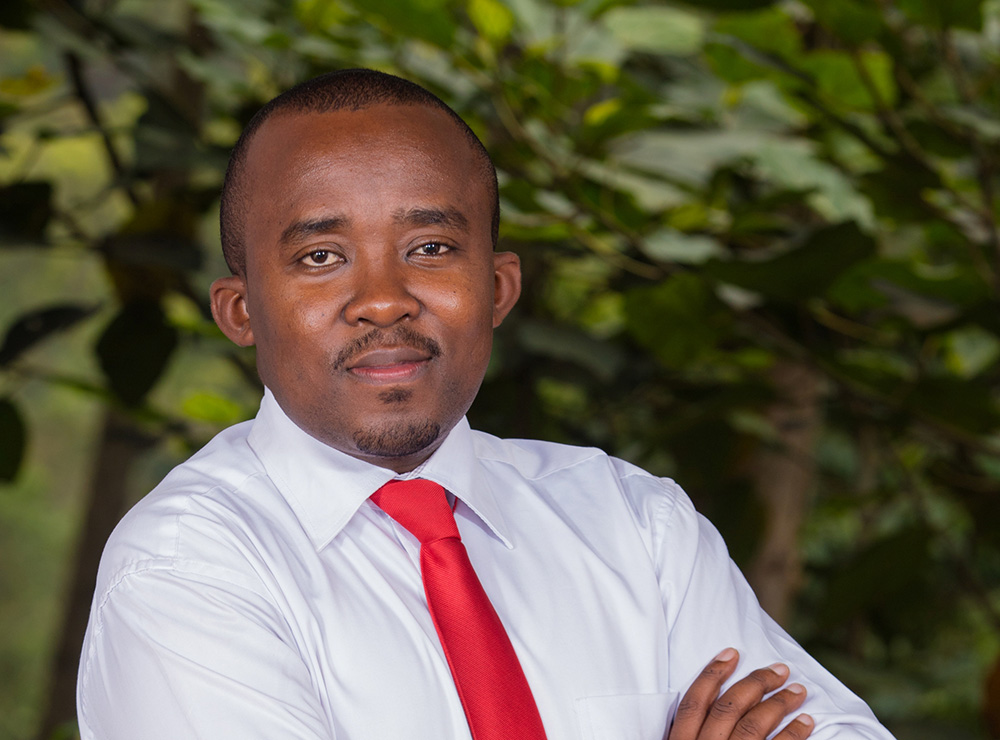
“We look forward to seeing her next chapter unfold,” says Mwirigi.
Najjuka’s gaze extends beyond her own trajectory. She speaks of what the Department could become. Furnished and equipped with industry-standard equipment, newsroom simulations, and deeper investment in data journalism as prayers. Her excellence is not self-congratulatory, but it is forward-looking.
“The University should support the Department to procure industry-standard equipment. Access to high-quality cameras, sound booths, and updated editing software like Adobe Creative Suite is critical to our learning environment,” she says.
Adding that, “We need a newsroom simulation, a physical or digital space where students work under real-time deadlines to produce content for the public. That would prepare us for industry and even strengthen the University’s own media platforms.”
In an era defined by metrics, algorithms, and digital traceability, data journalism is no longer a niche skill but a sine qua non of credible reporting. “There should also be more focus on data journalism and search engine optimization. These are no longer optional skills. Students would benefit immensely from stronger training in these areas.”
Dr. Aisha Nakiwala, the Head, Department of Journalism and Communication, says the faculty are very proud that she is graduating with a First Class—the only one in this year’s cohort.
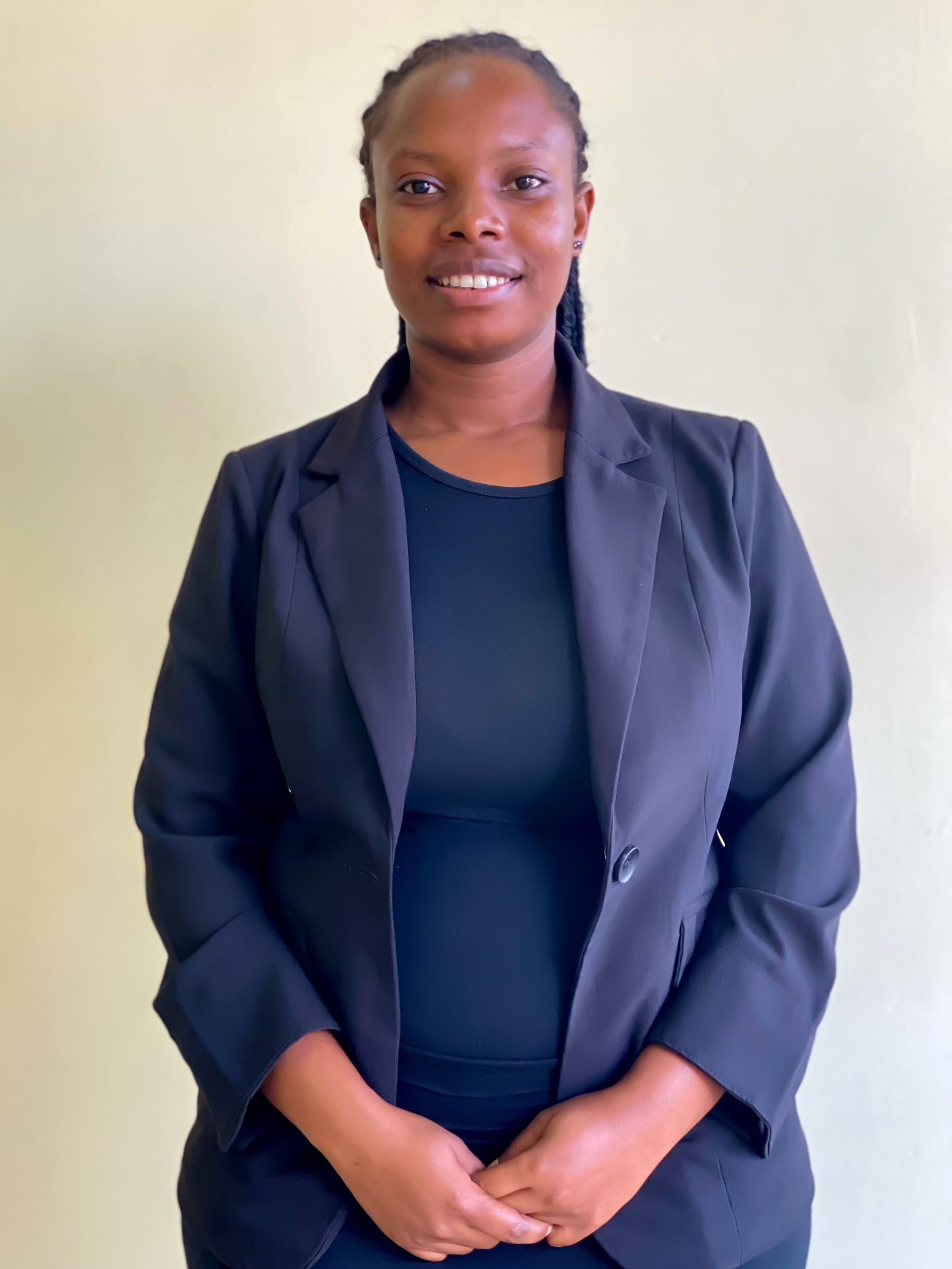
“This achievement reflects not only exceptional intellectual ability but also discipline, resilience, and sustained dedication to the highest standards over four years. Graduating with first-class honors is no small feat; it requires consistent outstanding performance.
“Her accomplishment sets a powerful example for continuing students and reaffirms our department’s commitment to nurturing excellence. We are confident she will make meaningful contributions to the communication profession and society at large,” says Dr. Nakiwala.
On graduation day, applause will crest and recede. The gowns will fold back into wardrobes. The transcripts will be filed away in cabinets. But something quieter will endure; a young woman from Nabbingo who once missed her Law mark, who spent 20 hours a week on the road, who discovered that storytelling is power, and who now walks into Freedom Square not by accident, but by intention.
Life, as she has come to understand it, lives on.
Humanities & Social Sciences
Dr. Pamela Khanakwa Honored for Steering Record 18 PhD Candidates for the Mak 2026 Graduation
Published
1 month agoon
January 23, 2026By
Jane Anyango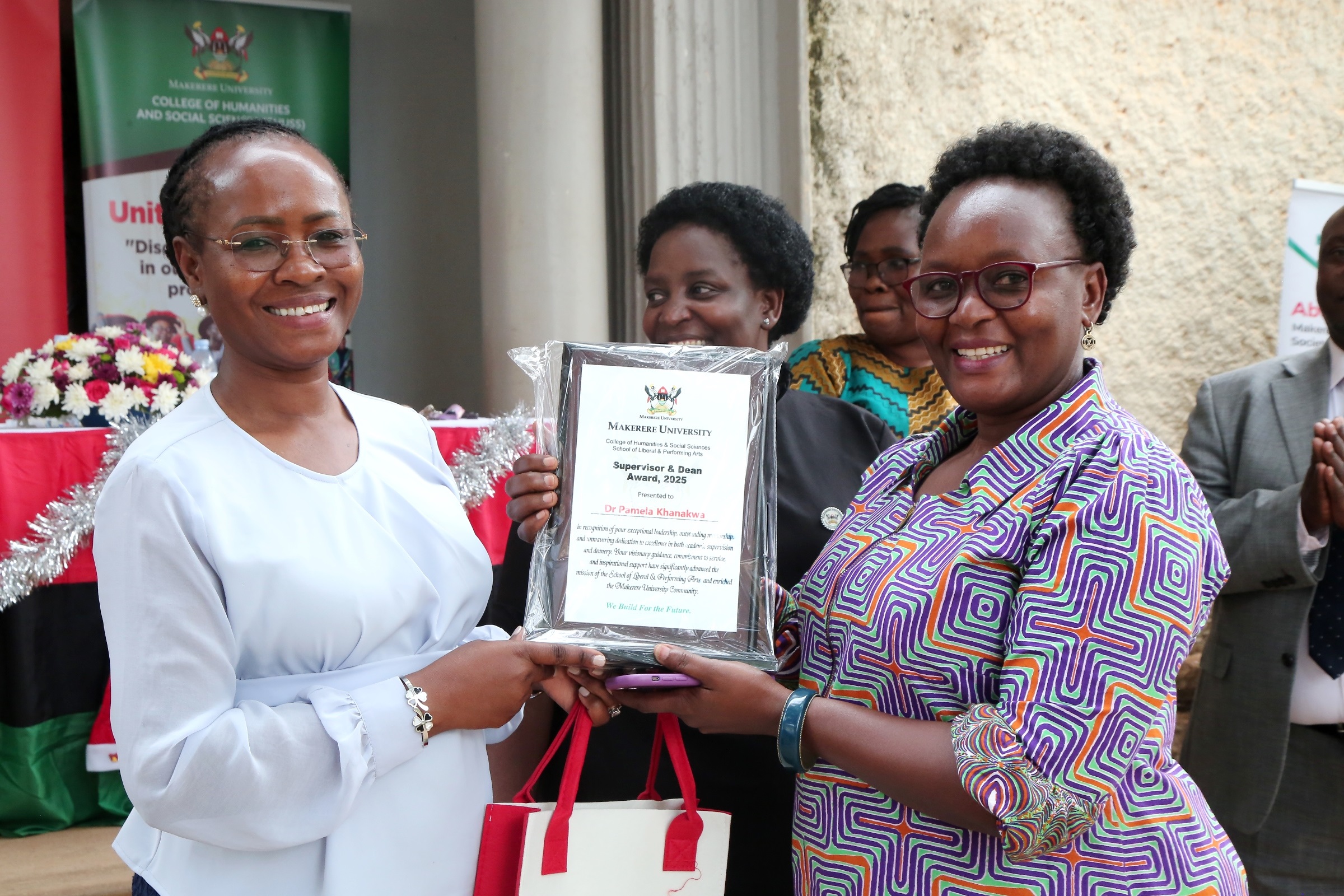
Six personally supervised, three completed in record time, as School of Liberal and Performing Arts sets a historic milestone. Dr. Pamela Khanakwa got the Award as Best PhD Supervisor and Dean
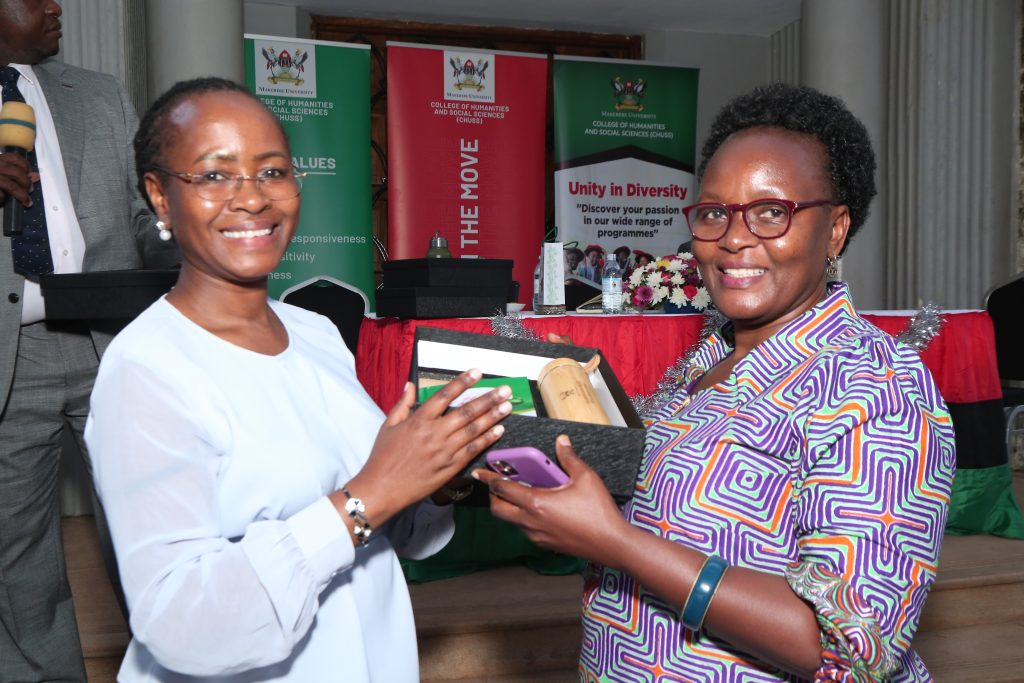
A Historic Academic Milestone for SLPA
The College of Humanities and Social Sciences (CHUSS) recognised the Dean of the School of Liberal and Performing Arts (SLPA), Dr. Pamela Khanakwa, for outstanding academic leadership that has seen the School field 18 PhD candidates for the next 2026 Makerere University Graduation Ceremony scheduled for 24th-27th February. Remarkably, six of these doctoral graduates were directly supervised by Dr. Khanakwa, with three completing within the official three-year timeframe, an exceptional achievement in graduate training. The recognition was announced during the CHUSS End-of-Year Get-Together, where staff applauded Dr. Khanakwa’s dedication, humility, and relentless commitment to postgraduate supervision and timely completion.
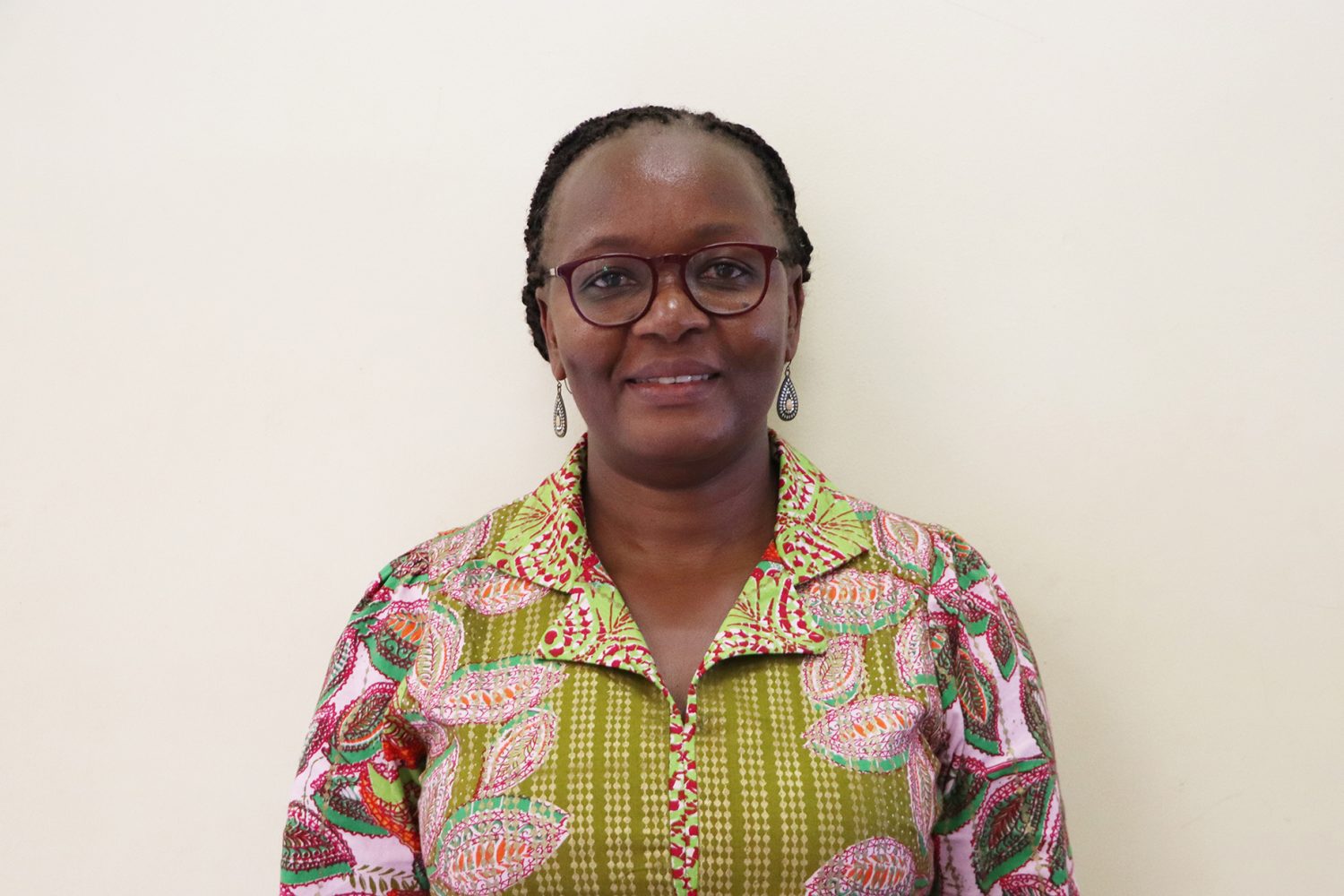
Message to Academic Staff
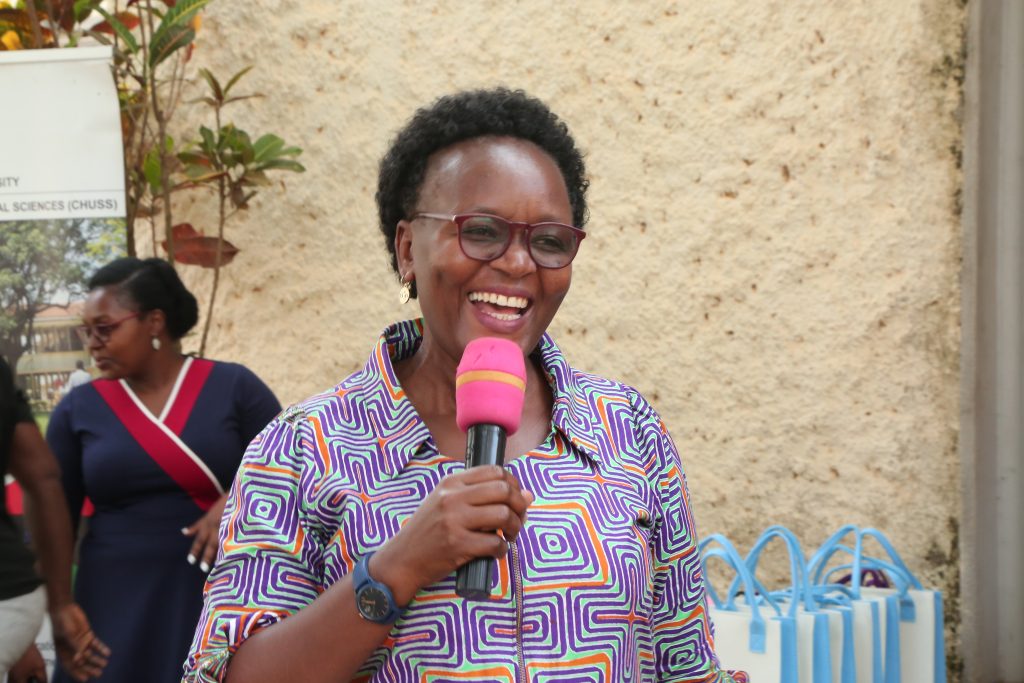
Q: What message do you have for your staff following this achievement?
Dr. Khanakwa:
First, I celebrate my staff and thank them for their dedication to supervision and student support. Academic work is demanding, and material rewards are often limited, but the true satisfaction comes from seeing students succeed.
I encourage my colleagues to remain committed. Yes, the workload is heavy, but many things are possible with dedication and teamwork. Let us continue working for the good of our students, our School, and Makerere University.
Leadership Rooted in Humility
Q: Many colleagues describe you as humble, down to earth, and hardworking. What shapes this character?
Dr. Khanakwa:
I think it is largely my upbringing. My mother was a primary school teacher from the 1950s until the mid-1980s. She worked extremely hard to raise us, combining teaching with farming to ensure we had school fees and basic needs. From her, I learned humility, discipline, and the value of hard work.
I also learned that leadership positions are temporary. You occupy them today, and tomorrow you move on. So humility is essential.
My graduate training also shaped me significantly. My PhD supervisor emphasized that graduate study is a full-time job and that results matter more than noise. Let people see your work through outcomes, not announcements.
Supervision as a Two-Way Commitment
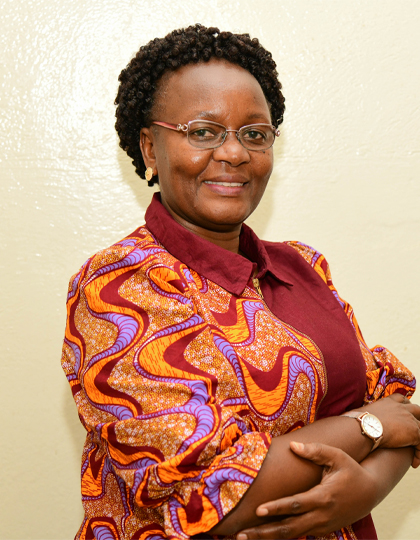
Q: How would you describe your supervision style?
Dr. Khanakwa:
I read my students’ work thoroughly, word by word. Sometimes my comments are tough, but they are honest. Supervision is a two-way commitment. I give feedback, but students must also respond and remain engaged. When that relationship works, progress happens.
Balancing Leadership, Scholarship, and Family
Q: How do you balance being a Dean, scholar, wife, mother, and daughter?
Dr. Khanakwa:
Honestly, I am not sure I balance perfectly. My mother lives far away in Bukwo, so visiting requires careful planning. My children grew up understanding the demands of academic life. I pursued my PhD in the United States and spent long periods away, but we adapted as a family.
Work has become part of my lifestyle. I use weekends to read dissertations, review manuscripts, and write. Sometimes my children ask if I ever sit without working, but this is the commitment I made. As we often say jokingly, “We humbly applied for the job, so let us do the job.”
Scholarship Beyond Supervision
Dr. Khanakwa is also an active scholar and editor. In the past year alone, she has:
- Edited scholarly volumes on archives, memory, method, and pedagogy
- Published a book with Routledge Companion
- Co-authored journal articles and book chapters with graduating students, including Priscah Asiimwe and Anatoli Lwasa Mpijja
“I feel an obligation to write with students,” she notes. “It takes time, energy, and commitment, but it is part of academic mentorship.”
Who Is Dr. Pamela Khanakwa?
Dr. Pamela Khanakwa is the Dean, School of Liberal and Performing Arts, College of Humanities and Social Sciences, Makerere University. She is a seasoned scholar, supervisor, administrator, and mentor whose leadership continues to redefine graduate training excellence. Details about Dr. Pamela Khanakwa can be accessed at: https://chuss.mak.ac.ug/en/personnel/pamela-khanakwa/
More details are available in her attached curriculum vitae.
The CHUSS End- Of-Year-Get-Together
On 12th December, 2025 the college leadership organised a get-together end of year gathering to take stock of the achievements, challenges and brainstorm together on how to move forward. The event was marked by entertainment, team building games, appreciation speeches, sharing a meal and a Christmas package for every staff
Retirees and staff recognised
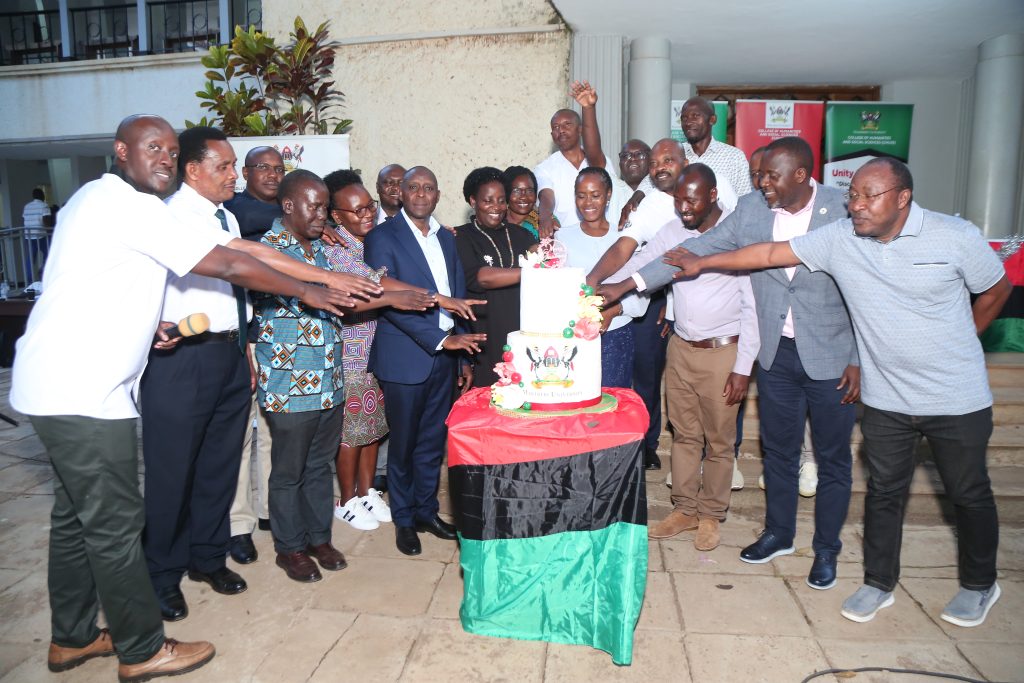
Five retired staff Dr. Micheal Wangotta Masakala, Dr. Anatole Kirigwajjo and Dr. Jackson Kizza Mukas (all from the School of Languages, Literature and Communication), Assoc. Prof. Florence Nansubuga (School of Psychology), Dr. Tusabe Gervase (School of Liberal and Perforing Arts) and Ms. Scovia Nganda Sekweyama (secretary from the School of Social Sciences) were recognised for their dedicated services to the university.
In addition to Dr. Pamela Khanakwa’s Award as Best PhD Supervisor and Dean, Ms. Birabwa Florence scooped the award of Best Registrar of the year. Birabwa is the registrar for the School of Liberal and Performing Arts.
Administrative and support staff including Ms. Mary Gyezaho and Annet Kashumbusha(both administrative secretaries in the Principals office), Farouq Lule (IT Officer), Godfrey Kakooza (cleaner), Charles Sebuguzi (driver) and Jane Anyango (Communications officer) were recognise with awards for outstanding service. Dr. Mohamed Mayanja Kajumba was from the School of Pyschology was recognised as the person with an outstanding talent in Handwriting.
The celebrations held in the Arts quadrangle were graced by the Vice Chancellor Academic Affairs Prof. Sarah Ssali and the Deputy Vice Chancellor in charge of Finance and Adminstration Prof. Ireeta Tumps.
Humanities & Social Sciences
Ugandan Journalists Trained on Peace and Gender-Sensitive Reporting Ahead of 2026 Elections
Published
2 months agoon
January 9, 2026By
Jane Anyango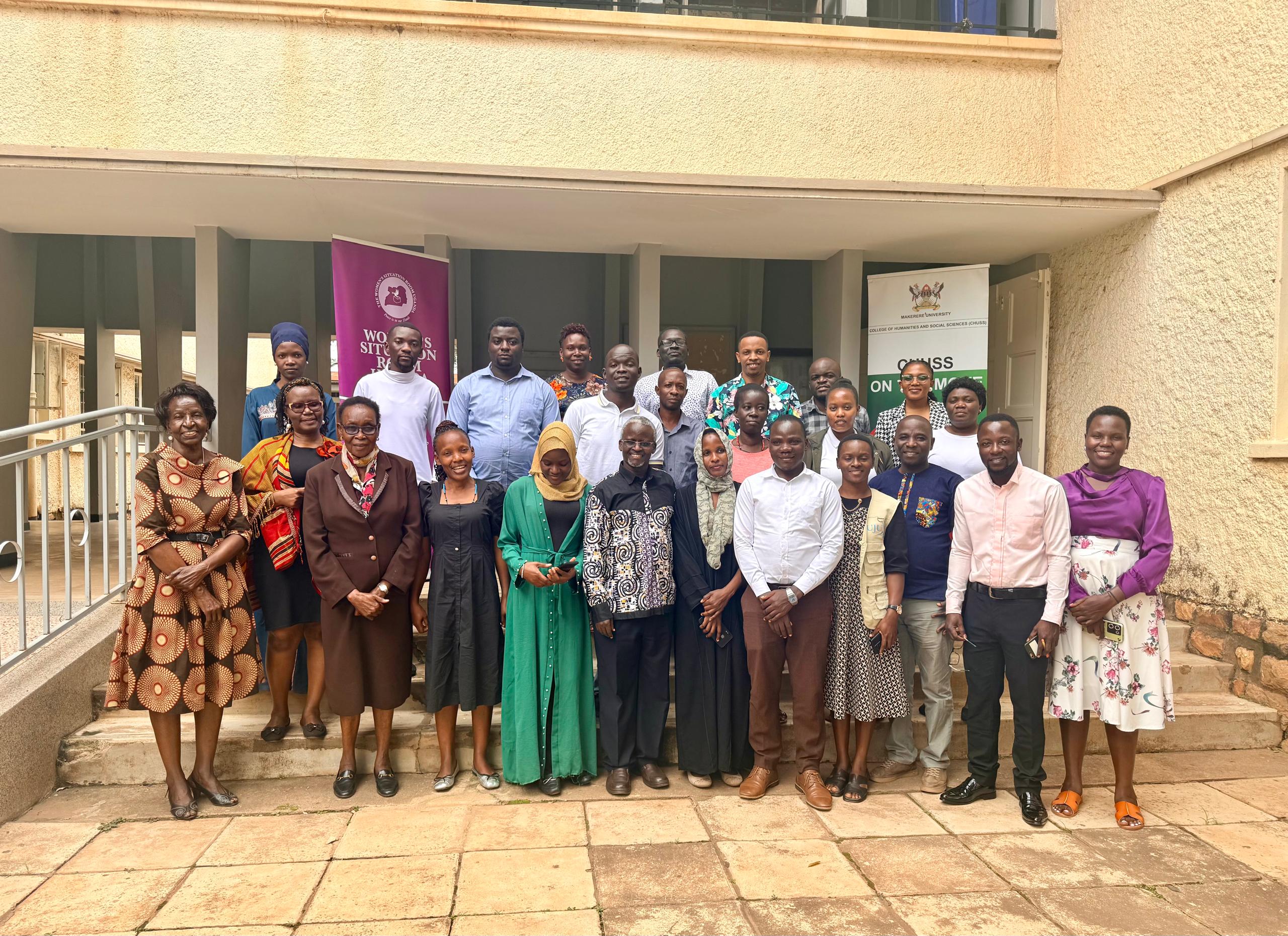
Kampala, Uganda – January 9, 2026
Ahead of the January 15 general elections, Ugandan journalists have undergone specialized training on peace and gender-sensitive reporting to ensure responsible media coverage during the election period. The two-day training, held from 8th to 9th January 2026 at Makerere University’s College of Humanities and Social Sciences Smart Room, was organized by the Women’s Situation Room (WSR) in partnership with various stakeholders and brought together journalists from across print, broadcast, and online platforms.
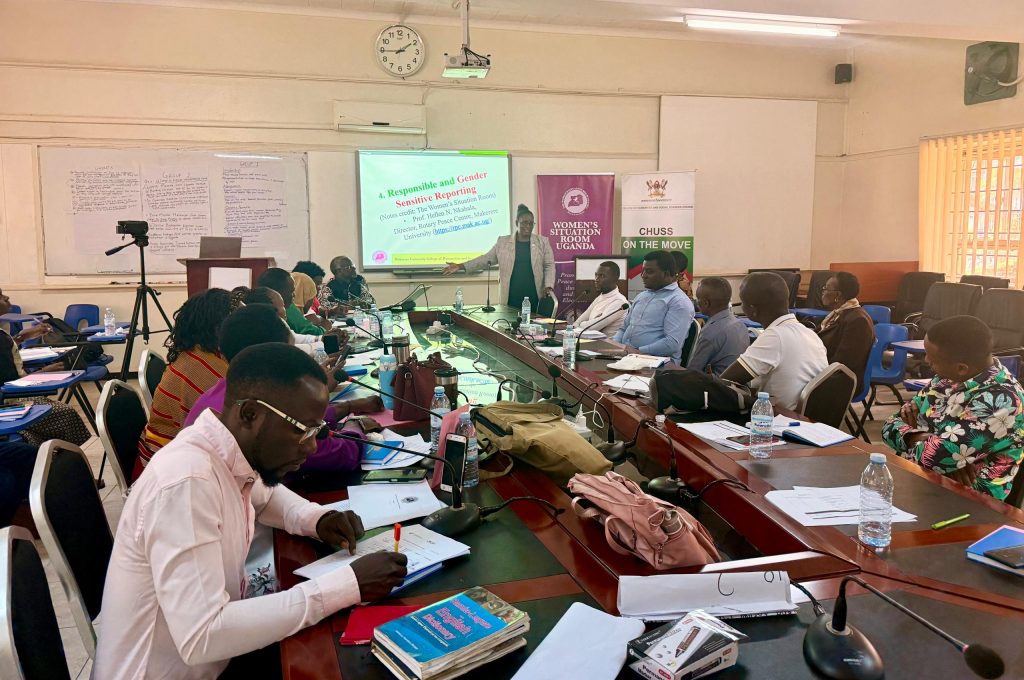
The main objective of the training was to strengthen the capacities of media in reporting and documenting electoral processes in a responsible and gender-sensitive manner. The specific objectives included: strengthening journalists’ skills to cover the 2026 elections in a fair, balanced, gender-sensitive, and non-violent partisan way; enhancing the role of media to enable citizens to be well-informed and actively participate in the election process; ensuring focused and balanced reporting on peace during and after elections; and strengthening partnerships between the WSR and media houses during the election period.
The training covered multiple critical modules. Day one focused on responsible conflict-sensitive reporting, emphasizing principles such as balance, impartiality, and accuracy. Participants explored the role of media as a relayer of the population’s voice, election monitor, catalyst for social cohesion and reconciliation, contributor to the accountability of political actors, and a platform for detecting and debunking digital media misinformation and hate speech.
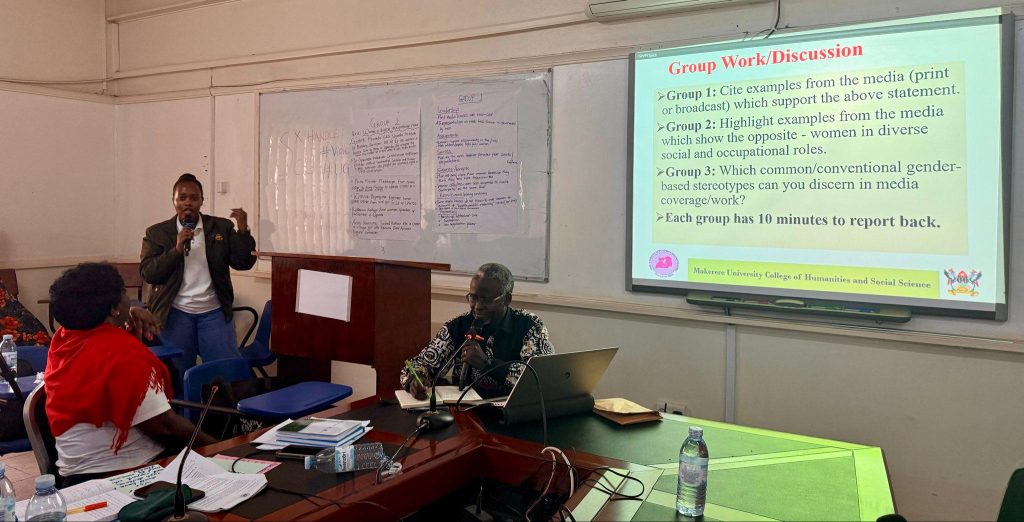
Day two addressed responsible and gender-sensitive reporting. Key aspects included the definition of gender-sensitive reporting, how to become a gender-sensitive reporter, critical elements in reporting with gender awareness, packaging gender-sensitive stories, and a checklist for detecting and avoiding gender-insensitive reporting.
Her Lordship, retired Judge Justice Mary Mayitum, emphasized the importance of peace as the foundation of development and democratic engagement. “Because we value peace more than anything. Without peace, really, you can do nothing. But where there is peace, you can have time to reflect, discuss with others, and join in meaningful dialogue,” she said. She warned that the country’s past conflicts, such as those in Gulu, underscored the necessity of maintaining national harmony.
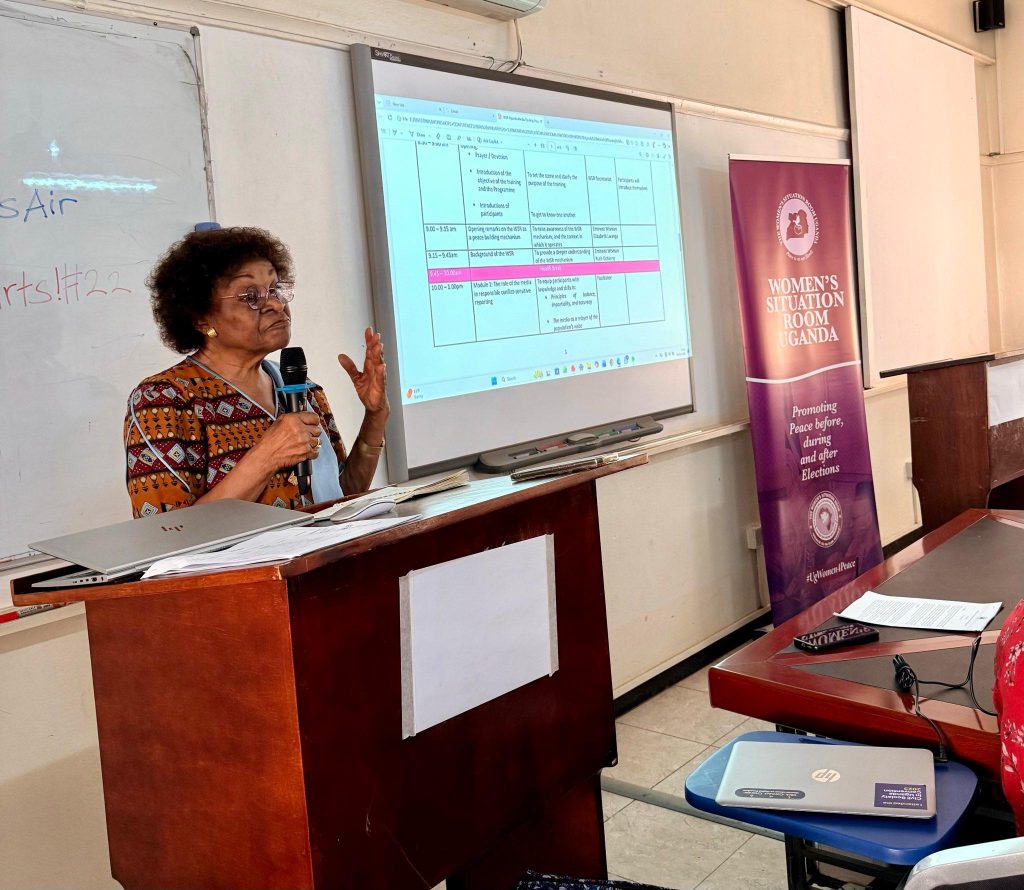
Justice Mayitum also urged other key election stakeholders to uphold peaceful conduct. “Being peaceful is the very heart of life. We have spoken to police, security personnel, political parties, and the Electoral Commission. We want politicians to have a code of conduct and to understand that it’s okay to think differently without fighting or hating one another,” she added.
Dr. William Tayebwa, lead facilitator and senior lecturer in the Department of Journalism and Communication at Makerere University, said, “This training is about conflict-sensitive reporting, peace journalism, and gender-sensitive reporting in the context of the elections. The emphasis was on giving female political candidates a voice while ensuring journalists report responsibly on election-related matters.”
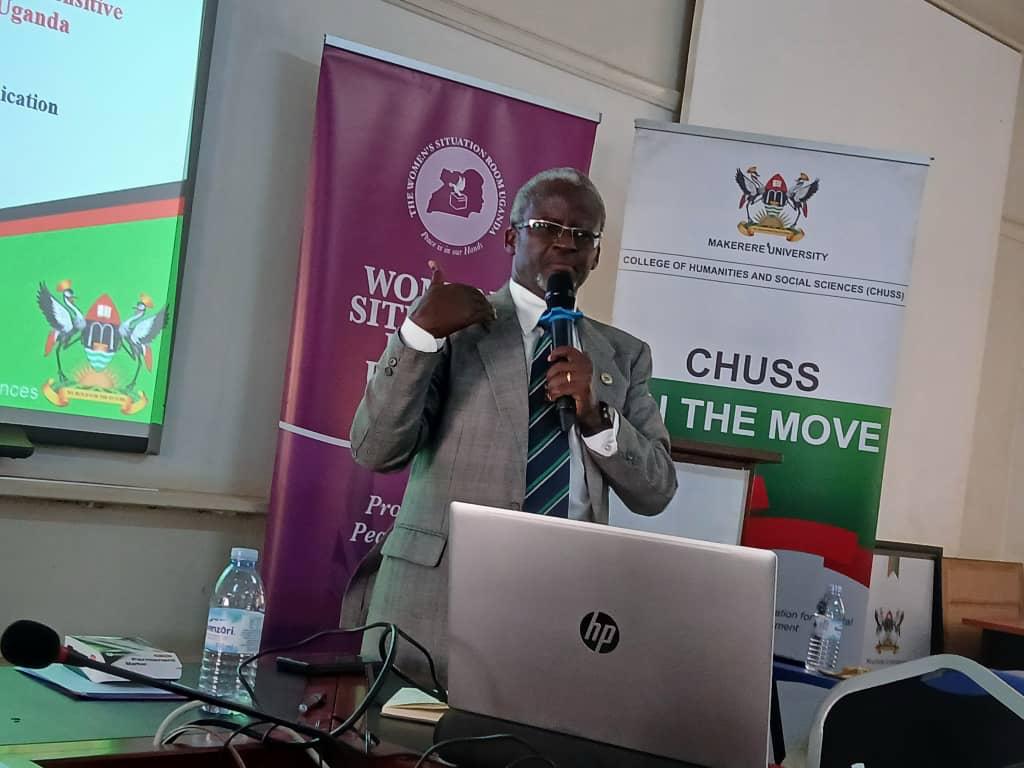
Participants described the training as timely and impactful. Tony Banizengabo of CBS Wakiso District said, “We’ve benefited a lot. We’ve been trained to write stories which bring peace, not conflict. Ahead of the elections, we are very ready to be part of peacemakers.”
Dorcas Kimono of UBC TV Kampala added, “It was so timely and rich. We learned how to report without promoting or fueling violence, giving voice to victims without angering them or encouraging violators. This is very vital, especially as we approach the 2026 elections.”
The training aims to equip media personnel with the knowledge and skills to uphold professional ethics while contributing to a peaceful, inclusive, and gender-sensitive electoral process.
Trending
-

 Humanities & Social Sciences3 days ago
Humanities & Social Sciences3 days agoMeet Najjuka Whitney, The Girl Who Missed Law and Found Her Voice
-

 Health1 week ago
Health1 week agoUganda has until 2030 to end Open Defecation as Ntaro’s PhD Examines Kabale’s Progress
-

 Agriculture & Environment6 days ago
Agriculture & Environment6 days agoUganda Martyrs Namugongo Students Turn Organic Waste into Soap in an Innovative School Project on Sustainable Waste Management
-

 General1 week ago
General1 week agoMastercard Foundation Scholars embrace and honour their rich cultural diversity
-

 General2 days ago
General2 days ago76th Graduation Highlights
